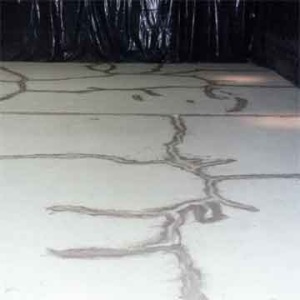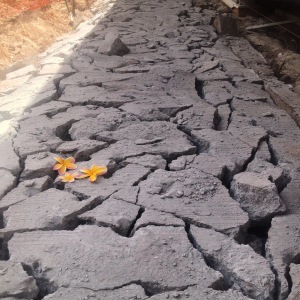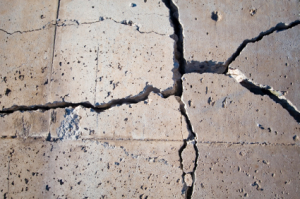Minor Masonry
-
Crack Repair: Driveways, Walkways, & Concrete Steps
-
Concrete Demolition
- Concrete Repair | TDServices | 808.388.3425
- Landscaping | TDServices | 808.388.3425
- Concrete Repair | TDServices | 808.388.3425
Cracks and gaps in concrete are more than just an eyesore. Water can get into the joints, freeze and then expand, making the cracks even larger. Gaps against a house can direct water against the foundation, leading to more problems. Once a year, go around your home and fill these gaps and joints with urethane caulk to prevent problems. The caulk is available at contractor supply stores, well-stocked home centers and hardware stores. For gaps and joints more than 1/4 in. wide, install foam backer rod to support the caulk. You want the rod to fit tight in the joint, so buy it one size larger than the gap.
A word of advice: Keep the urethane caulk off your bare hands and clothes; it’s the stickiest stuff you’ll ever touch. Wear disposable gloves when you’re tooling the joints. If you get some on your skin, quickly wipe it off with a paint thinner–dampened cloth.
Sealing a concrete driveway often makes the driveway look good and also helps in extending the life of the concrete driveway. Here are answers to the questions which arise while you decide to seal concrete driveway.
What are the Benefits of Concrete Driveway, Lani, or Walkway Sealing?
Driveways are subjected to wind, rainfall, snow and other weather conditions. They are also subjected to traffic. Extreme hot and cold climate can cause cracks in the concrete driveways. During rainfall, the water is absorbed by the concrete. The water expands when it freezes, thereby breaking and damaging the concrete. The concrete driveway sealers protect the driveways from snow, wind, rainfall and high temperature. Sealers also help in beautifying the driveways.
Is it Necessary to Seal a New Concrete Driveway, Lani, or Walkway?
Yes. Though concrete is a strong material, extreme weather conditions will crack and put holes in the concrete driveway; this leads the driveway vulnerable to further damage. The new concrete driveway needs to be sealed immediately after the concrete is poured and dried. This helps in providing immediate protection to the driveway thus reducing the chances of cracks and other damage.
Concrete driveways may require sealing every 3 to 10 years depending on the weather conditions. Extreme hot or cold weather trigger the damages in driveways. Hence, places with extreme hot or cold weather require sealing more often.
What is the Material Used to Seal Concrete Driveway, Lani, or Walkway?
There are different types of sealers available for sealing concrete driveways. Some of them are acrylic resin sealers, polyurethane sealers, epoxies and penetrating resin sealers. Acrylic resin based sealers are the most commonly used ones for sealing concrete driveways and are cheaper when compared to others. Acrylic sealers are available in different forms like styrene acrylic, virgin acrylic etc. Virgin acrylic, also known as pure acrylic resin, is the best type of acrylic sealer which provides long lasting results. Polyurethane and epoxy sealers block the passage of moisture from the concrete and hence can lead to the formation of fog between the concrete and sealer. These are also slippery. Penetrating sealers are made of silicones, siloxanes and silanes. These sealers easily penetrate into the concrete thus blocking oil, water and other contaminants which can cause harm to the concrete driveway. Penetrating sealers do not produce gloss and hence are not slippery.
What is the Method of Applying Driveway, Lani, or Walkway Sealers?
There are 2 methods of applying sealers to driveways i.e. either by rollers or by sprayers. Solvent-based sealers are usually applied by sprayers while water based sealers are applied by rollers. One thing that has to be kept into consideration is coverage rate of the sealer which can be around 250 to 300 square feet per gallon. Apply 2 thin coats such that the sealer is evenly spread.
How Long will the Driveway, Lani, or Walkway Sealing Last?
The life of the sealing depends on the quality of the sealers used. Good quality sealers are costlier, but can last longer while cheap sealers last for a short time. On an average the sealers last for around 1 to 3 years. Hence proper maintenance of driveways require sealing every few years
*For additional details & review you can also visit yelp.com or my review page
*Call For Estimates | 808.388.3425 |trevor.drinen@gmail.com
*Services include: pressure washing, painting, light carpentry, light electrical, landscaping, minor roofing, & masonry
*Additional services: IT, Web Design, Networking, Email, Domain Setup, Mac / PC / Mobile Devices
*Additional services: Wedding & Funeral Officiant


